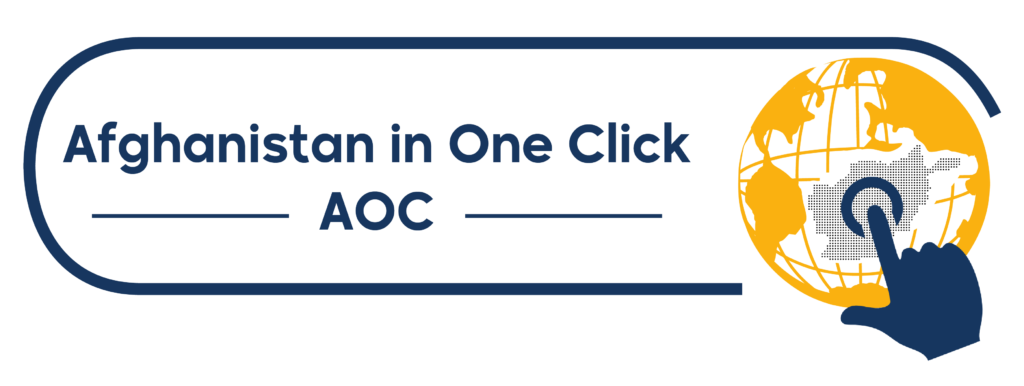At least 66 dead as new floods hit Afghanistan’s Faryab province
 Flooding damaged more than 1,500 houses, swamped more than 400 hectares of agricultural land and killed livestock.
Flooding damaged more than 1,500 houses, swamped more than 400 hectares of agricultural land and killed livestock.
“Due to the floods 66 people were killed,” he said, adding that at least five people were injured and several others missing.
The flooding damaged more than 1,500 houses, swamped more than 400 hectares (1,000 acres) of agricultural land and killed livestock in their hundreds, he said.
Another 18 people had also died in floods in the same province on Friday, Moradi added.
The latest disaster in Faryab came just a day after provincial authorities said 50 people were killed in flash flooding just south of the province in Ghor.
According to the Kabul-based TOLONews, up to 80 percent of the city of Ferozkoh in Ghor was destroyed by the flooding.
Afghanistan is prone to natural disasters, and the United Nations considers it among the countries most vulnerable to climate change.
Just over a week ago, more than 300 people were killed in flash flooding in northern Baghlan province, according to the UN World Food Programme and Taliban officials.
Even before the latest spate of floods, about 100 people had been killed from mid-April to early May as a result of flooding in 10 of Afghanistan’s provinces, authorities said.
Farmland has been swamped drowning thousands of cattle in a country where 80 percent of the more than 40 million people depend on agriculture to survive.
The rains come after a prolonged drought in Afghanistan, which is one of the least prepared nations to tackle climate change impacts, according to experts.
Amid the disaster, Afghanistan is also facing a shortfall in aid after the Taliban took over as foreign forces withdrew in 2021. Development aid, which formed the backbone of government finances, was slashed.
The shortfall has worsened in subsequent years as foreign governments grapple with competing global crises and growing condemnation of the Taliban’s curbs on Afghan women.
Three Afghans, three Spanish tourists killed in Bamyan shooting
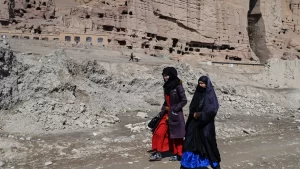 Three Afghan nationals and three Spanish tourists were killed in central Afghanistan’s Bamyan province, the Taliban government has said, as it raised the death toll from the attack in a market.
Three Afghan nationals and three Spanish tourists were killed in central Afghanistan’s Bamyan province, the Taliban government has said, as it raised the death toll from the attack in a market.
On Saturday, the government said that the bodies of the three Afghans and three Spanish tourists were transported to the capital, Kabul.
The group was fired on while walking through a bazaar in the mountainous city of Bamyan, about 180km (110 miles) from Kabul, on Friday.
“All dead bodies have been shifted to Kabul and are in the forensic department and the wounded are also in Kabul. Both dead and wounded include women,” Ministry of Interior Affairs spokesman Abdul Mateen Qani told the AFP news agency.
“Among the eight wounded, of whom four are foreigners, only one elderly foreign woman is not in a very stable situation.”
According to hospital sources in Bamyan, the wounded were from Norway, Australia, Lithuania and Spain.
Qani said that the fatalities included two Afghan civilians and one Taliban member.
“They were roaming in the bazaar when they were attacked,” he added.
Seven suspects were in custody and one of them was wounded, according to Qani, who said the investigation was continuing.
No group has claimed responsibility for the attack.
Spain’s government on Friday announced that three of the dead were Spanish tourists, adding that at least one other Spanish national was wounded.
“Overwhelmed by the news of the murder of Spanish tourists in Afghanistan,” Prime Minister Pedro Sanchez posted on X.
The bodies would likely be brought back to Spain on Sunday, according to Foreign Minister Jose Manuel Albares, who spoke on Spanish public television TVE.
He said one of the wounded had already undergone surgery in Kabul.
Afghanistan’s flailing tourism sector has seen the number of foreign tourists up 120 percent year on year in 2023, reaching nearly 5,200, according to official figures.
Islamabad is Trying to Create Distrust Between Kabul and Beijing
 The Islamic Emirate said that Islamabad is attempting to create distrust between Kabul and Beijing.
The Islamic Emirate said that Islamabad is attempting to create distrust between Kabul and Beijing.
Zabihullah Mujahid, the spokesperson for the Islamic Emirate, in response to the Pakistani Ministry of Foreign Affairs’ statement about the perpetrators of the attack on Chinese citizens in Pakistan, said that this issue has nothing to do with Afghanistan and Pakistan should ensure its own security.
The spokesperson for the Islamic Emirate said: “Targeting Chinese nationals in Pakistan is related to Pakistan and has nothing to do with Afghanistan. The report published by Pakistanis is an attempt to create distrust between China and Afghanistan. We have repeatedly denied this, and it is also illogical.”
Earlier, the Ministry of Foreign Affairs of Pakistan released a statement saying that investigations regarding the attack on Chinese citizens have been shared with the Islamic Emirate and called for cooperation from the interim government in this matter.
“Pakistan has no proof for this matter and this visit is meaningless. They will achieve nothing, and this claim is not true. They want to show the Chinese that we made an official visit to Afghanistan to clarify the issue,” said Kamran Aman, a political analyst.
At the same time, some analysts said that sharing information with each other is effective in solving political challenges; however, Pakistan should not link the challenges arising in that country to Afghanistan.
“If issues are shared, it is better for ensuring security and solving problems; but if Pakistan wants to portray itself as innocent in this matter and blame the Afghan government, this is not right,” said Sayed Qaribullah Sadat, a political analyst.
Pakistan officials have repeatedly made similar claims; however, the Islamic Emirate has denied these claims, pledging that Afghan soil will not be used against any country.
Pakistan Seeks Afghan Cooperation to Finalize Besham Attack Investigation
 The delegation met with the Deputy Minister of Interior of the Islamic Emirate, requesting assistance in identifying the perpetrators of the attack.
The delegation met with the Deputy Minister of Interior of the Islamic Emirate, requesting assistance in identifying the perpetrators of the attack.
During a recent visit to Kabul, the Pakistani delegation headed by the Secretary Interior, Muhammad Khurram Agha, presented findings regarding the Besham attack to Afghan officials, as stated by Pakistan’s Ministry of Foreign Affairs.
The delegation met with Mohammad Nabi Omari, the Deputy Minister of Interior of the Islamic Emirate, requesting assistance in identifying the perpetrators of the attack.
“In the meeting, which focused on the terror attack of 26 March 2024 at Besham, the Secretary Interior shared the findings of the Government of Pakistan into the Besham attack and sought Afghanistan’s assistance in apprehending the perpetrators,” the statement reads.
Furthermore, the statement indicated that Afghan officials vowed to cooperate in concluding these investigations, and both sides concurred on the necessity of joint efforts to counter terrorist threats.
Meanwhile, the Deputy Spokesperson of the U.S. Department of State, Vedant Patel, remarked that the United States is engaged in discussions with Pakistani leaders regarding counter-terrorism efforts.
Vedant Patel said in a press briefing: “We are in regular communication with Pakistani leaders as part of our counterterrorism issues, and we’re going to continue to discuss regional security in detail, including through high-level engagements, working-level engagements, and other extensive bilateral consultations as well.”
Earlier, the Ministry of Interior of the Islamic Emirate also stated in a press release that Deputy Minister Mohammad Nabi Omari, in a meeting with the Pakistani delegation, emphasized that everyone should pay attention to the security of their regions and that “instead of diverting issues, true cooperation should be facilitated.”
On March 26, a suicide bombing in Khyber Pakhtunkhwa’s Besham area killed five Chinese nationals and a Pakistani citizen.
Girls Seek Access to University Entrance Exam, University Enrollment
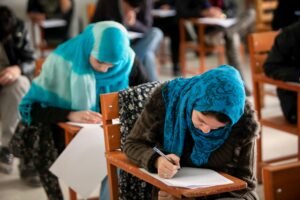 Despite this, the girls remain hopeful that they will be allowed to take the exam alongside the boys.
Despite this, the girls remain hopeful that they will be allowed to take the exam alongside the boys.
As the date for the first phase of the 1403 (solar year) entrance exam approaches, many female students are concerned about their lack of access to the exam.
Despite this, the girls remain hopeful that they will be allowed to take the exam alongside the boys.
Safia, a high school graduate, hopes to be permitted to take the entrance exam and attend her desired college.
She told TOLOnews: “When we graduated from school, we hoped to take the entrance exam. We filled out the exam forms sent by the Islamic Emirate, but they didn’t hold the exam for us. Our male classmates graduated, but we were left with no future.”
Faheema, another student, said: “It has been three years since girls have attended school or university, with the doors of universities closed to them. However, I have not lost hope during these three years.”
Additionally, some female university students are urging the interim government to reopen universities.
Noor Afgan, a student, said: “I was in my third year of university when the doors were closed to girls. Only one year remained. We hoped to complete the final year and graduate, but unfortunately, we couldn’t start our fourth year.”
Meanwhile, some university professors warn that the closure of educational institutions can have severe consequences.
Tafsir Siyahposh, a university professor, told TOLOnews: “Ignoring the closure of educational institutions can have negative consequences, especially for the women of this country. We hope the Islamic Emirate pays attention so we don’t face more problems.”
The National Examination Authority announced that the first phase of the 1403 entrance exam will be held on the 17th of this month (Jawza) for candidates from sixteen provinces.
Nimroz Governor: Modern Sciences Essential for Society
 Meanwhile, several students in Nimroz have urged the interim government to urgently reopen schools for girls.
Meanwhile, several students in Nimroz have urged the interim government to urgently reopen schools for girls.
Mohammad Qasem Khalid, the Governor of Nimroz, has called the acquisition of modern education a serious necessity in the country.
Khalid, during a program introducing elite students from public and private schools, stated that there is a need to provide standard educational opportunities to students in schools.
The Governor of Nimroz said, “Mastering all modern sciences is a fundamental need for our society, enabling us to acquire sufficient knowledge about the Quran through modern science, and it is essential to provide the opportunity for students to learn standard sciences in schools.”
Meanwhile, several students in Nimroz have urged the interim government to urgently reopen schools for girls.
Rahimullah, a student, expressed, “I am pleased to be recognized today and I want the interim government to reopen girls’ schools because they also need the opportunity to learn modern sciences just like boys.”
Abdul Hakim, another student, added, “I ask the interim government to open the doors of schools and universities to girls as well, as they have the right to participate in the country’s development just like us.”
Local authorities in Nimroz have stated that opportunities for modern education have been provided to a number of youths in the province.
According to them, courses in computer and English language have been launched for interested youths by the Department of Information and Culture free of charge.
Habibullah Elham, the head of Nimroz’s Department of Information and Culture, said, “Last year, we were able to provide the opportunity for many youths in Nimroz to learn modern sciences. The Department of Information and Culture in Nimroz has launched free courses in computer science, English language, and other areas. We encourage youths to make greater efforts for societal growth.”
As the Governor of Nimroz advocates for providing opportunities for modern education in schools, it has been approximately two and a half years since girls’ schools were closed.
Over ten people publicly punished in Khost, Afghanistan
 The Supreme Court of Taliban recently announced that over ten people in Khost province were subjected to corporal punishment in public.
The Supreme Court of Taliban recently announced that over ten people in Khost province were subjected to corporal punishment in public.
On Thursday, May 30, the court announced in a press release that the individuals were punished with 39 lashes each for various accusations, including theft and so-called moral corruption, according to the statement.
The announcement from the Supreme Court of the Taliban stated that among the individuals, six were sentenced to three years in prison.
The court’s press release also mentioned that six accused were sentenced to 15 months in prison.
Meanwhile, in the past two days, 15 people were flogged in Khost, Ghazni, and Kunduz.
Previously, the spokesperson for the Supreme Court of the Taliban had stated that in the past month, over 40 people had been punished for various charges in different cities across Afghanistan.
Since taking power, the Taliban have conducted corporal punishment, flogging, and executions in public. This happens amid a dire humanitarian crisis and severe poverty in the country.
The situation is worsened by the mass expulsion of Afghan refugees from Iran and Pakistan. This has exacerbated the country’s already critical conditions.
Nearly a thousand Afghan migrants deported from Pakistan
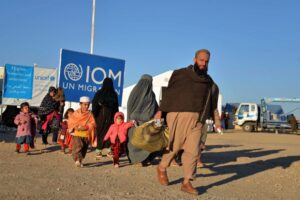 The Ministry of Refugees and Repatriations reported the forced expulsion of nearly a thousand Afghan migrants from Pakistan.
The Ministry of Refugees and Repatriations reported the forced expulsion of nearly a thousand Afghan migrants from Pakistan.
Today, on Thursday, May 30, the ministry announced that 979 Afghan migrants returned after being expelled from Pakistan.
According to the ministry, the deportees returned on May 29 via the Spin Boldak border and the Torghundi border.
Based on information from the Torghundi border customs office in Nangarhar province, 115 families, comprising 647 individuals, entered the country through this checkpoint.
Additionally, 62 families, consisting of 332 individuals, continue to enter the country through the Spin Boldak crossing.
Afghan migrants are being expelled from Pakistan and Iran amidst recent devastating floods that caused significant damage in various provinces of the country.
The dire situation exacerbated by the recent floods has increased the need for humanitarian aid in Afghanistan.
Turkey suspends diplomatic visa exemption agreement with Afghanistan
 The Turkish presidency announced in a statement that the diplomatic visa exemption agreement between Turkey and Afghanistan has been revoked.
The Turkish presidency announced in a statement that the diplomatic visa exemption agreement between Turkey and Afghanistan has been revoked.
According to the statement from the Turkish Presidency, published on Wednesday, May 28th, this decision, signed by Turkish President Recep Tayyip Erdoğan, will be implemented starting from June 1.
The decree signed by the Turkish president states: “The agreement between the Republic of Turkey and the Islamic Republic of Afghanistan on the mutual exemption from visa obligations for holders of diplomatic passports, signed on September 29, 2007, and implemented by the Council of Ministers’ decision on January 8, 2008, will be terminated as of June 1.”
With the revocation of this agreement, Turkish and Taliban officials will now have to undergo the visa application process for mutual entry into Afghanistan and Turkey.
Turkey made this decision based on Article 3 of Presidential Decree No. 9, which outlines the President’s authority regarding the approval of international agreements.
Turkey has not yet recognized the Taliban officially, but several Taliban officials have visited Turkey at the government’s official invitation, and Turkey has accepted several Taliban diplomats.
Since the Taliban took over, their government remains unrecognized by the international community. However, several regional countries maintain unofficial ties with the Taliban administration.
Countries including Iran, Pakistan, Turkey, China, and Russia have unofficial connections with the Taliban, despite the lack of formal recognition.
Pakistan mandates ‘Transit permits’ for Afghanistan cargo trucks
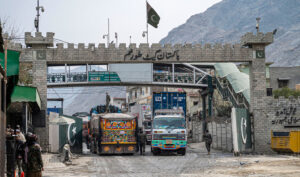 The government of Pakistan has made it mandatory for trucks carrying commercial goods from Afghanistan to obtain a “Temporary Entry Permit.”
The government of Pakistan has made it mandatory for trucks carrying commercial goods from Afghanistan to obtain a “Temporary Entry Permit.”
The Pakistani newspaper, Express Tribune, reported that this decision was made on Friday, May 24th.
According to this report, Afghan commercial trucks can only enter Pakistan through designated routes under previous agreements and must be registered with the Peshawar and Quetta Trade and Transit Departments to receive a “Temporary Entry Permit.”
The document observed by the Express Tribune shows that this permit has an issuance and expiration date, and must be renewed at the relevant country’s transportation department.
The report also mentions that trucks carrying commercial goods from Afghanistan must have a verified copy of the vehicle owner’s computerized national identity card, the vehicle’s registration book, a vehicle fitness certificate, and a declaration of responsibility for the safe transportation of imported and exported goods under transit trade to obtain the permit.
This comes as Afghanistan commercial trucks have repeatedly faced stringent restrictions at Pakistan’s border crossings, causing economic damage to national traders.
Turkish Airlines resumes flights to Kabul, Afghanistan
 Turkish Airlines has announced the resumption of its flights to Afghanistan after a three-year hiatus.
Turkish Airlines has announced the resumption of its flights to Afghanistan after a three-year hiatus.
The company stated in a press release that it will commence its flights to Kabul today, Tuesday, May 21.
According to the announcement, Turkish Airlines will operate four flights per week from Kabul to Istanbul.
Additionally, the state-controlled national television reported that the company conducted its first flight this morning from Turkey to Kabul.
Previously, Turkish Airlines had announced that it would operate four flights a week on Sundays, Tuesdays, Wednesdays, and Fridays between Kabul and Istanbul, and vice versa.
It’s worth noting that Turkish airlines, like several other countries, had suspended their operations after the resurgence of the Taliban in Afghanistan.
Previously, some foreign airlines including “Emirates” and “Flydubai” from the UAE, as well as airlines from Iran and Pakistan, had announced the commencement of their operations in Afghanistan.
Turkish Airlines was established in 1933 by the order of Kemal Mustafa Atatürk and was founded as part of the country’s Ministry of Defense. It operates flights to over 200 international airports worldwide.
Russia shows interest in importing Afghanistan’s agricultural products
 Alexey Overchuk, Deputy Prime Minister of Russia, has announced that Moscow is interested in importing agricultural products from Afghanistan into its markets.
Alexey Overchuk, Deputy Prime Minister of Russia, has announced that Moscow is interested in importing agricultural products from Afghanistan into its markets.
TASS news agency reported that the Russian Prime Minister made these remarks on Friday, May 17, during the sidelines of the “Kazan” meeting.
He called for increased exports from Afghanistan to Russia and mentioned the development of relations between the two countries in the areas of transportation and supply.
According to the Russian Prime Minister, exports of grapes and dried fruits to Russia began last year, and Moscow’s markets are interested in Afghanistan’s products.
The 15th International Economic Forum of Russia and the Islamic World is scheduled to be held today, Sunday, May 19, in the city of Kazan, Tatarstan.
Meanwhile, the Ministry of Industry and Commerce of Afghanistan announced that in the Russia-Islamic World meeting, discussions were held about Afghanistan and Russia’s economic capacities, exports and imports between the two countries, investment in Afghanistan’s mining sector, and increasing trade between Afghanistan and Russia.
According to reports, a high-ranking delegation from the country has also traveled to the Republic of Tatarstan, Russia, to participate in the 15th International Economic Forum of Russia and the Islamic World.
It is worth noting that this forum is held to strengthen trade and economic relations, scientific and technical cooperation, and social and cultural ties between the regions of Russia and the member countries of the Organization of Islamic Cooperation and to promote the development of Islamic financial institutions.
UNDP: 73% of Afghan women face travel restrictions without male escort
 The United Nations Development Programme has published a report on the resilience of women entrepreneurs in Afghanistan, stating that 73% of Afghan women face travel restrictions without a mahram or male escort.
The United Nations Development Programme has published a report on the resilience of women entrepreneurs in Afghanistan, stating that 73% of Afghan women face travel restrictions without a mahram or male escort.
The detailed report by the United Nations Development Programme, titled “Listening to Afghanistan’s Women Entrepreneurs; Their Resilience and Struggle,” was released on Thursday.
This report is based on interviews with 3,100 women and group discussions.
The organization noted that 73 women interviewed said that without a male family member, they could not even go to local markets in Taliban-controlled Afghanistan.
According to the organization, requiring women to travel with a male family member places an additional burden on women and doubles travel costs for women entrepreneurs.
The report states that women entrepreneurs in Afghanistan face numerous obstacles, including discrimination, operational restrictions, and a severely weak financial system.
The UNDP wrote that the restrictions on women’s mobility exacerbate the challenges women entrepreneurs face.
According to the report, in Taliban-controlled Afghanistan, where 15.8 million people need humanitarian aid and women’s employment has halved to 6%, entrepreneurship has emerged as a lifeline.
The UN has reported that according to their discussions, 80 women-led companies rely on their businesses as their sole source of income and have created job opportunities for other women.
Over the past nearly three years, the Taliban have imposed extensive restrictions on women in various areas, including education, work, and travel.
Business Tax in Afghanistan Reduced to 0.3%

According to this decree, if the sales exceed two million Afghanis, the payment of 0.3% tax is mandatory.
Some senior officials of the Islamic Emirate announced today (Thursday) in the “exemption and reduction of the fixed tax” meeting that the leader of the Islamic Emirate has reduced the business tax from 0.5% to 0.3%.
According to the officials, this action was carried out based on the decree of the leader of the Islamic Emirate, and businesses with annual sales up to 2 million afghani will not be taxed.
Deputy Prime Minister for Administrative Affairs Abdul Salam Hanafi requested that tax collectors at the meeting to handle businesses according to principles, warning that failure to do so and in case of complaints, they will be dismissed.
Hanafi said: “If someone has annual sales of four million, two million of it is exempt from tax and the other two million will be taxed at 0.3%.”
Meanwhile, acting ministers of Economy and Industry and Commerce said the creation of tax facilities for businesses to will be impactful on the country’s economic progress. They said that tax relief for businesses has been introduced in the absence of any foreign aid to support the national budget.
Acting Minister of Economy Din Mohammad Hanif, said: “Exemptions or facilities are provided at a time when the Islamic Emirate does not receive any foreign aid.”
Acting Minister of Industry and Commerce Nooruddin Azizi, said: “Without taxes, revenue, and service fees collected from businesses, the private sector, and chambers, it is impossible to run the government in a country.”
According to this decree, if the sales exceed two million Afghanis, the payment of 0.3% tax is mandatory.
At the same time, other officials of the Islamic Emirate at the meeting said that the leader of the Islamic Emirate has tried to provide necessary facilities for shopkeepers and businessmen over the past three years.
Noor-Ul-Haq Anwar, the head of the general directorate of the Islamic Emirate in Administrative Affairs, said: “If people notice, every action of the Islamic Emirate is neither for show nor arbitrary, but it is real and meets the needs of the current situation.”
Neda Mohammad Nadim, the acting minister of Higher Education, said: “The daily reduction of taxes, which is the policy of the system, is done out of piety and because the system is Islamic.”
The Ministry of Finance reported that 206 types of businesses, including shopkeepers and tradespeople, are active nationwide. This ministry has called on all businesses to pay their taxes on time and cooperate with the Ministry of Finance.
Eight Mining Contracts Signed in First Two Months of 1403
 The Ministry of Mines and Petroleum said that the signed contracts with domestic companies include two large mines and six small mines.
The Ministry of Mines and Petroleum said that the signed contracts with domestic companies include two large mines and six small mines.
In the first two months of 1403 (solar year), eight mining contracts were signed with an investment volume reaching $40 million.
The Ministry of Mines and Petroleum said that the signed contracts with domestic companies include two large mines and six small mines.
The large mines include the Jegdalek ruby mine in Kabul and the barite mine in Herat. The six small mines include two nephrite mines, two marble mines, one fluorite mine, and one lead and zinc mine.
The spokesman for the Ministry of Mines and Petroleum, Homayoun Afghan, told TOLOnews: “The investment volume on these two large mines is about $33 million, and we had six small-scale contracts through open tenders with domestic companies. These mines include nephrite and marble mines located in various provinces.”
A number of experts emphasize the processing of mines within the country. They said that the money earned from the mines should be spent on the country’s infrastructure sectors.
“We should advance mining extraction in a more excellent and permanent way. Because if a foreign country comes and extracts, that’s it. If we find the ability to extract these mines, we can continue job creation and raise our graph,” said Ahmad Firdaws Behgozin, an economic affairs expert.
“More mines should go towards extraction and contracts, where the capacity for processing and production is possible within the country. That is, we should extract and tender those mines for which we have production facilities inside the country,” said Abdul Nasir Reshtia, another economic affairs expert.
According to statistics from the Ministry of Mines and Petroleum, so far, more than 150 small mines have been contracted to domestic companies, and 30 large mines have been contracted to Chinese, Iranian, Turkish, Qatari, and some other countries that also have Afghan partners.
Ministry of Economy: Continuing Intl Aid for Flood Victims is Essential
 Abdul Rahman Habib, called on all aid organizations to continue their assistance to the flood victims in the current situation.
Abdul Rahman Habib, called on all aid organizations to continue their assistance to the flood victims in the current situation.
The Ministry of Economy said that for the recent flood victims in the country, the European Union has provided 97 tons of food, and Turkey and Qatar have also provided 80 tons of food supplies.
Abdul Rahman Habib, the spokesperson for the Ministry of Economy, called on all aid organizations to continue their assistance to the flood victims in the current situation.
The spokesperson said: “We ask all United Nations organizations, aid organizations, industrial and commercial unions, and our fellow citizens to take an active part and not to withhold assistance from the flood victims.”
At the same time, Save the Children and the International Federation of Red Cross and Red Crescent Societies, in reports expressed concern over the situation of recent flood victims and emphasized that they are trying to provide shelter and food to the affected people.
Save the Children said that its health teams in Baghlan have so far provided services to 1,758 people.
Arshad Malik, country director for Save the Children in Afghanistan, said: “The impacts of these devastating floods are immediate and long-term. Children urgently need clean water and health care to ensure that the current disaster does not worsen with the spread of disease. They also need long-term support for mental health, as many of them have lost their loved ones.”
Wasim Safi, CEO of the Chamber of Agriculture and Livestock, said: “Their daily needs must be met, and if the private sector and international organizations help in this area, it will be better.”
The flooding in recent weeks in the country has caused significant financial losses in addition to the loss of lives in several provinces.
The destruction of residential houses, the demolition of public infrastructure, the loss of agricultural lands, and the death of livestock have increased the problems of the residents of several provinces.
Some of these victims, who have not yet received assistance, said they urgently need aid organizations to address their basic needs, such as shelter and food.
“So far, no aid has reached us, and we and our neighbors are in great difficulty,” Khairullah, a flood victim, told TOLOnews.
“The flood has come and left people helpless, but no aid has arrived yet,” said Nasratullah, a flood victim.
The acting Minister of Refugees and Repatriation, Khalil Rahman Haqqani, in a meeting with the Chinese ambassador to Kabul Zhao Xing, discussed the damages caused by the recent floods and asked China to provide housing, employment, and educational opportunities for Afghans who have been displaced by natural and unnatural events, in addition to the returned refugees.
In this meeting, the Chinese ambassador described the recent human and financial losses caused by floods in Baghlan, Ghor, and some other provinces as severe and pledged that his country is ready to help these flood victims as much as possible.
According to information from the International Federation of Red Cross and Red Crescent Societies (IFRC), the flooding up to May 12 in Baghlan, Badakhshan, and Takhar provinces has killed 230 people and injured about 250 people, and 50 people are missing.
Permanent Art Exhibit Opens at Kabul's Ethnographic Research Museum
 In this exhibition, seventy artworks, including jewelry, miniature works, engravings, and calligraphy, are on display.
In this exhibition, seventy artworks, including jewelry, miniature works, engravings, and calligraphy, are on display.
A permanent exhibition of artistic works has been organized by the Firozkoh institution at the Ethnographic Research Museum of the Academy of Sciences in Kabul.
In this exhibition, seventy artworks, including jewelry, miniature works, engravings, and calligraphy, are on display.
Firozkoh’s artworks have been permanently transferred to this museum to pass on culture to future generations.
“Today’s exhibition includes all sections. About seventy artworks from various fields are permanently exhibited in this exhibition,” said Ahmad Jawid Paaya, the head of higher education for architecture and arts at the Firozkoh Institute.
Meanwhile, Amir Jan Saqib, deputy head of the Academy of Science, said that another museum, which will include more than 2,500 artifacts, is set to be transferred to this museum. Saqib also pledged that cultural and historical artifacts, symbols of the unity and solidarity of the people, will be well-preserved in the Academy of Sciences.
“This is the historical heritage of Afghanistan and a symbol of the culture and unity of the Afghan tribes, and God willing, it will be preserved in the Academy of Sciences for future generations,” said the deputy head of natural sciences at the Academy of Sciences.
Officials at the Academy of Sciences have also called for greater awareness about the ethnographic museum among citizens by the Firozkoh institution.
“The Firozkoh Institute must coordinate with the Academy of Sciences of Afghanistan to ensure attention is given to the ethnographic museum and raise awareness in all universities and schools in Afghanistan to visit the ethnographic museum,” said Mohammad Alam Ishaqzai, the deputy head of human sciences at the Academy of Sciences.
Currently, the Ethnographic Research Museum houses thousands of artifacts that represent the culture and traditions of the thirty-four provinces.
Competitive Exhibition of Calligraphy and Painting in Kabul
 A competitive exhibition of calligraphy and painting was held in Kabul. In this exhibition, more than seventy artists displayed their works of painting and calligraphy.
A competitive exhibition of calligraphy and painting was held in Kabul. In this exhibition, more than seventy artists displayed their works of painting and calligraphy.
They criticized what they consider to be the neglect of the arts of painting and calligraphy in Kabul.
Zarmina, a participant, said, “Until today, I have never had a master to work with; however, I am proud that we have reached this level today.”
Fereshat, another participant, stated, “Art is fundamentally a necessity in a society because it portrays the realities of a society.”
Artists are asking the Islamic Emirate for support and the provision of facilities in the area of raw materials for themselves and their peers.
Mozammil, a participant, remarked, “Although we work very hard, culture and art make up half the body of society; yet no one supports us, our art is diminishing day by day.”
Gholam Hossein, another participant, commented, “The exhibitions that have been held this year are very good and have had positive effects on all participants.”
Meanwhile, officials from the Afghanistan House of Culture and Arts state that the aim of launching the competitive program is to develop and support painters and calligraphers.
Officials from this institution add that the program was conducted in collaboration with the Ministry of Information and Culture and the Afghanistan House of Culture and Arts at the Kabul International Exhibition.
Reza, an official at the House of Culture and Arts, said, “We hope to motivate artists who have become housebound and reluctant to visit their galleries, so that through this initiative they may continue their art and not waste their talent.”
According to the officials of the House of Culture and Arts of Afghanistan, currently, ninety percent of the painting and calligraphy galleries have been closed for various reasons, leading to a decline in the presence of painting and calligraphy among the youth.
Art as a Ray of Hope: Bamyan Girls Turn to Painting
 In Bamyan, several girls who have been deprived from schooling have found solace and opportunity in the arts—specifically painting, engraving, and calligraphy.
In Bamyan, several girls who have been deprived from schooling have found solace and opportunity in the arts—specifically painting, engraving, and calligraphy.
These young artists report that selling their creations enables them to contribute financially to their families.
They are also advocating for better facilities and more suitable spaces to nurture their artistic talents, seeking attention from local authorities to improve their conditions.
Marzia, who is deprived of schooling, says she paints her dreams on blank paper and funds her family’s expenses through selling them.
This girl, who dropped out in the eighth grade, is calling for the reopening of educational opportunities and the creation of better conditions in the arts for girls.
“It has been a year since I started drawing various paintings. Since I missed out on school, I’ve created this hobby for myself, and I want it to be a source of income in the future,”Marzia told TOLOnews
Two female graduates of painting and engraving have established a vocational training ground in a corner of Bamyan city for many girls who were left out of school.
Marzia Sadat, a teacher, said: “We have created this opportunity for girls who have been left out of education, to keep them engaged and to create a source of income for them.”
Sediqa Jafari, another teacher, stated, “The purpose of establishing vocational painting education for these girls is to teach them the art of painting and to help them earn income in the future.”
The head of information and culture in Bamyan pledged support for artistic activities in the province.
Safiullah Raed, head of Information and Culture of Bamyan, said: “We send Bamyan artists to exhibitions held in Kabul and support their artistic activities with all our might.”
Handicraft production, fish farming, beekeeping, dairy processing, painting, calligraphy, and pyrography are among the most important activities for women in Bamyan, and through these, they support the living expenses of their families.
National Museum Showcases Over 900 Ai-Khanoum Artifacts
 Officials at the National Museum of Afghanistan reported that more than 900 Ai-Khanoum artifacts are at the national museum.
Officials at the National Museum of Afghanistan reported that more than 900 Ai-Khanoum artifacts are at the national museum.
According to officials at the National Museum, these artifacts include pottery and building materials.
Mohammad Yahya, deputy of the National Museum, said: “Currently, there are about 945 large Ai-Khanoum artifacts in the museum, some of which are on display, and these include statues and decorative items.”
National Museum officials also announced the upcoming opening of an Ai-Khanoum exhibition in the near future.
Archaeologists and cultural analysts said antique artifacts and historical artifacts are a national identity and they emphasized the preservation of these artifacts in the country.
“Regarding our historical artifacts, I must say that they cannot be recreated; both people and the government must strive to complete and make good use of them,” said Jabar Zargar, a cultural analyst.
“Historical artifacts and sites that have been left from the past show our identity, and these artifacts are the link between our past and future history, and their preservation is the responsibility of governments,” said Abdul Rahman Ehsas, a cultural analyst.
Earlier, the Ministry of Information and Culture said that since the start of mining operations at the Mes Aynak copper mine in Logar Province, more than 10,000 historical artifacts have been discovered.
ICC Men's T20 World Cup Begins Tomorrow
 The ICC Men’s T20 World Cup, featuring Afghanistan’s team, officially begins this Sunday, hosted by the USA and the West Indies.
The ICC Men’s T20 World Cup, featuring Afghanistan’s team, officially begins this Sunday, hosted by the USA and the West Indies.
On the first day of the competition, the West Indies will face PNG, and the USA cricket players will compete against Canada.
Meanwhile, the Afghanistan team will play its first match within the next three days against Uganda.
In their second practice and preparation match for the World Cup, the Afghanistan national cricket team defeated Scotland by 55 runs last night.
Afghanistan’s national cricket team is grouped with New Zealand, the West Indies, Uganda, and PNG in the World Cup.
Afghan Football Team Prepares for Qatar and Kuwait
 Currently, the national football team stands third in their group with four points, ahead of Kuwait.
Currently, the national football team stands third in their group with four points, ahead of Kuwait.
The training camp of the Afghanistan national football team continues in Saudi Arabia to prepare for their upcoming matches against Kuwait and Qatar.
Officials from the Football Federation released images of the ongoing training camp in Saudi Arabia, highlighting the training efforts of the national players as they aim to achieve positive results against Qatar and Kuwait.
Following their victory against India in the return match of the second qualifying round of the 2026 World Cup and 2027 Asian Cup, the Afghan players are now preparing for their second and third return matches against Qatar and Kuwait.
The national football team will face Qatar on June 6 in Saudi Arabia. They will then play their third match of the competition against Kuwait on June 11.
So far in this stage of the competition, the Afghan footballers have played four matches against Kuwait, Qatar, and India. They were defeated in their away games against Qatar and Kuwait but managed to secure a draw and a victory in their home and away matches against India.
Currently, the national football team stands third in their group with four points, ahead of Kuwait.
Rashid Khan Returns to Kabul
 Due to busy schedule and participating in various commercial cricket tournaments, Rashid Khan Arman had not been able to travel to Afghanistan in recent years.
Due to busy schedule and participating in various commercial cricket tournaments, Rashid Khan Arman had not been able to travel to Afghanistan in recent years.
Rashid Khan Arman, Afghanistan national cricket player, arrived in Kabul today (Saturday, May 18).
Officials from the Afghanistan Cricket Board, by publishing photos of Khan’s return to Kabul on their Facebook page, said that this renowned national cricket team bowler has returned to the country after four years.
Due to busy schedule and participating in various commercial cricket tournaments, Rashid Khan Arman had not been able to travel to Afghanistan in recent years.
Upon his return to the country, this national cricket player was warmly welcomed by Afghanistan Cricket Board officials and several other players of the sport.
Rashid Khan Arman, Afghanistan T20 captain, has returned to the country after four years, having recently concluded his participation in the Indian Premier League as part of the Gujrat Titans following his team’s elimination from the competition.
Afghanistan’s Khan is set to travel to the West Indies in the coming days, the venue for the 2024 T20 World Cup.
The Afghanistan national cricket team will participate in the T20 World Cup in the United States and the West Indies, with Rashid Khan Arman as the captain.
Boxer Qais Alizada Wins Silver at ASBC Event in Astana
 This boxing match between Alizada and the Kazakhstan opponent was held in the 80kg category on Tuesday night in Astana, Kazakhstan.
This boxing match between Alizada and the Kazakhstan opponent was held in the 80kg category on Tuesday night in Astana, Kazakhstan.
Qais Alizada, a US-based Afghan boxer, won a silver medal at the Asian Boxing Confederation (ASBC) Asian U22 and Youth Boxing Championships in Astana, Kazakhstan.
Alizada was defeated in the final match against his opponent from Kazakhstan, but won the silver medal, the first for Afghanistan after nearly two decades.
This boxing match between Alizada and the Kazakhstan opponent was held in the 80kg category on Tuesday night in Astana, Kazakhstan.
According to officials in the Afghanistan National Boxing Federation (ANBF), athletes including Qais Alizada are expected to represent the country in Olympic-qualifier competitions in Thailand and Russia in the coming days.
Subscribe Now
Don’t miss our future updates! Get Subscribed Today!
© 2024 White Assembly. All Rights Reserved.
